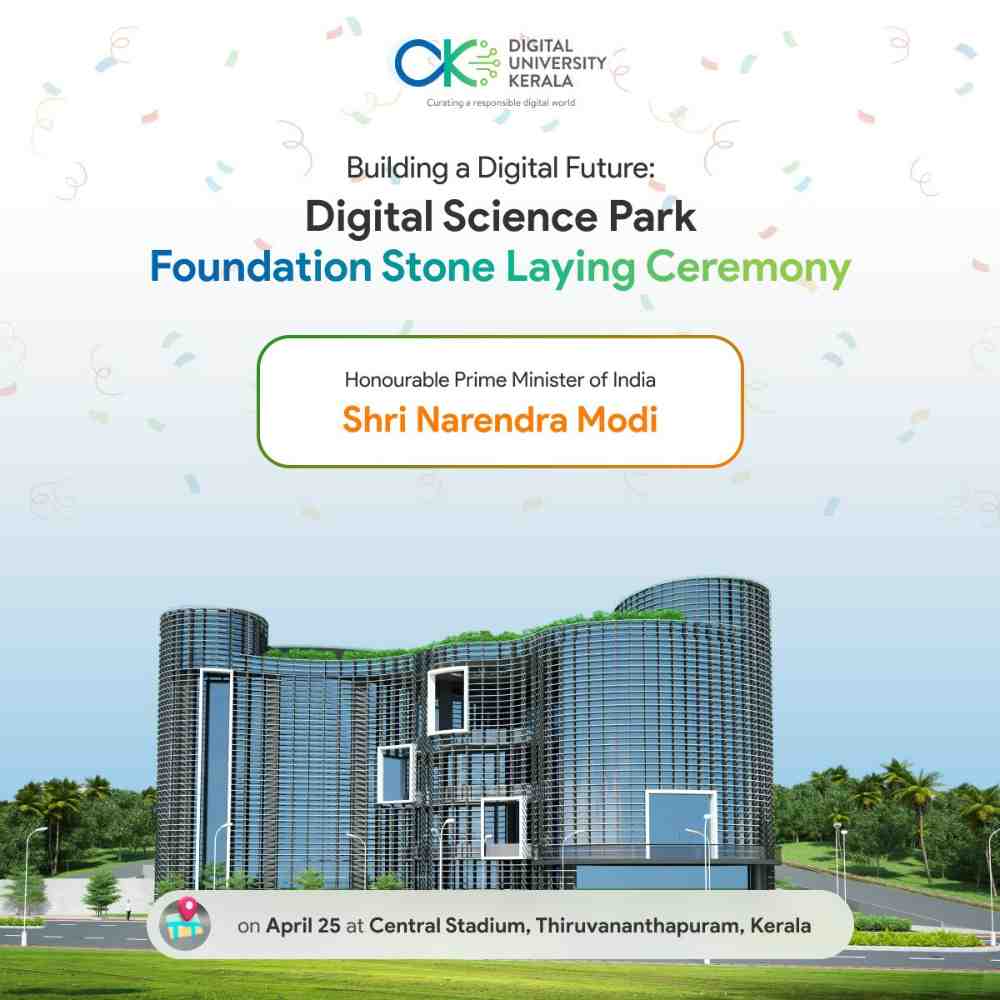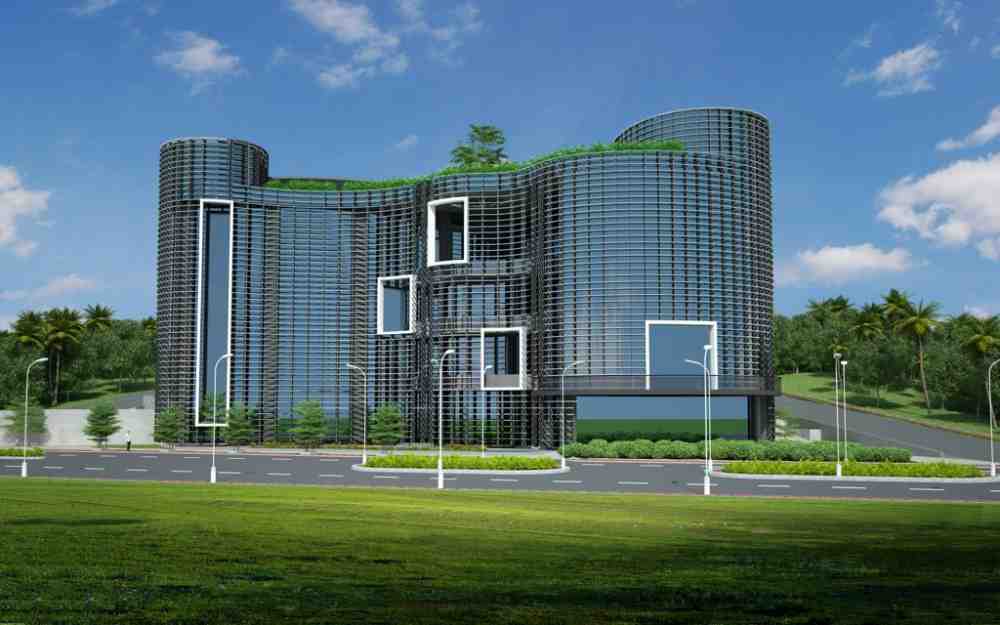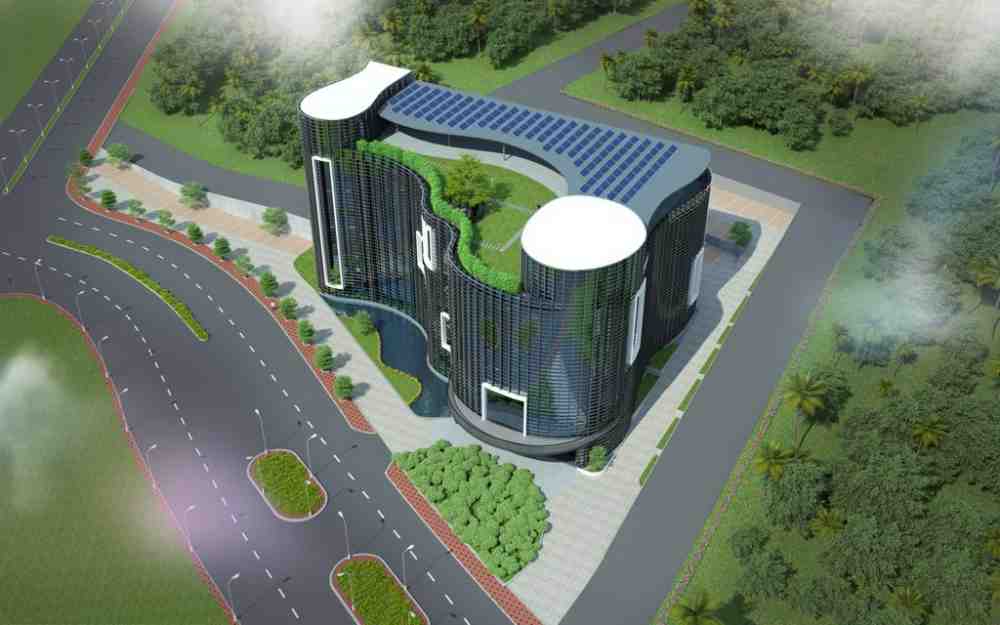On April 25th, Indian Prime Minister Narendra Modi will lay the foundation stone for the construction of India’s first third-generation Digital Science Park, which is expected to be a milestone in Kerala’s rise to becoming a Knowledge Economy.
The Digital Science Park, which is part of Technopark Phase Four, is being constructed at Pallipuram Technocity, and it is designed with an innovative vision of digital technologies focused on multi-disciplinary cluster-based interactive innovation. This project is expected to be completed within three years, and it will span over a 14-acre site adjacent to the Digital University in Technocity.
Several prominent individuals, including Governor Arif Muhammad Khan, Chief Minister Pinarayi Vijayan, Central Railway Communications Electronics IT Minister Ashwini Vaishnav, Union Minister of State for External Affairs Parliamentary Affairs V. Muralidharan, State Transport Minister Anthony Raju, State Railway Minister V. Abdurrahiman, and Dr. Shashi Tharoor MP will participate in the laying of the foundation stone.

- The Digital Science Park is a significant investment by the Indian Government, with a total project outlay of an estimated 1515 crores.
- The State Government had announced in the 2022-23 budget that a Digital Science Park with an area of 10 lakh square feet in two blocks would be set up, along with the Kerala Digital University, with an investment of Rs 200 crore.
- The Kerala Government has sanctioned 200 crores, and the remaining balance will have to be raised from other sources, including industry partners.
The Science Park is expected to develop and leverage interactions between Universities, Industry, and Government, with a particular focus on facilitating Industry-Business units and Start-ups in areas such as Industry 4.0, Artificial Intelligence, Robotics, Electronics, Smart Hardware, and Sustainable-Smart Materials.

The proposed Digital Science Park will focus on four core areas, including Industry 4.0, which is a digital industry that focuses on Electronics, Semiconductors, very large-scale Integration, 5G Communications, Smart Materials, Medical materials, and more. The second area is Digital Applications, which focuses on e-mobility and digital health, and the third area is Digital DeepTech, which focuses on Artificial Intelligence. The fourth area is Blockchain, Security, and environmentally sustainable Informatics, and another key area is Digital Entrepreneurship focused on creating new products, capabilities, and jobs.
These four core areas will translate into high-end research labs and facilities such as clean rooms, material characterization facility, integrated sensor labs, energy labs, motor and drive labs, RF and wireless testing labs, unconventional computing center, high-end data center, robotics labs, electronic design center, software development labs, Informatics and computing Labs, and blockchain-cybersecurity labs.
The park will be operational with the first center in Electronics System Design, which will focus on analog and mixed-signal systems, VLSI, and AI processors. UK-based semiconductor and software design company ARM has signed an agreement with Kerala Digital University for Academic, Research, and Start-up related activities, and multinational US Technology company NVIDIA will join the center as a partner.

The AI Center at the Park will focus on responsible AI hardware and software issues. Additionally, the Universities of Manchester, Oxford, and Edinburgh have signed MoUs with the Digital University to participate in the development of the Digital Science Park.
The proposed park will initially consist of two buildings, the first of which is a one and a half lakh square feet building with five floors, and it will house a Center of Excellence, including research labs and a digital incubator. The second building will house the Administrative center and Digital experience center.
